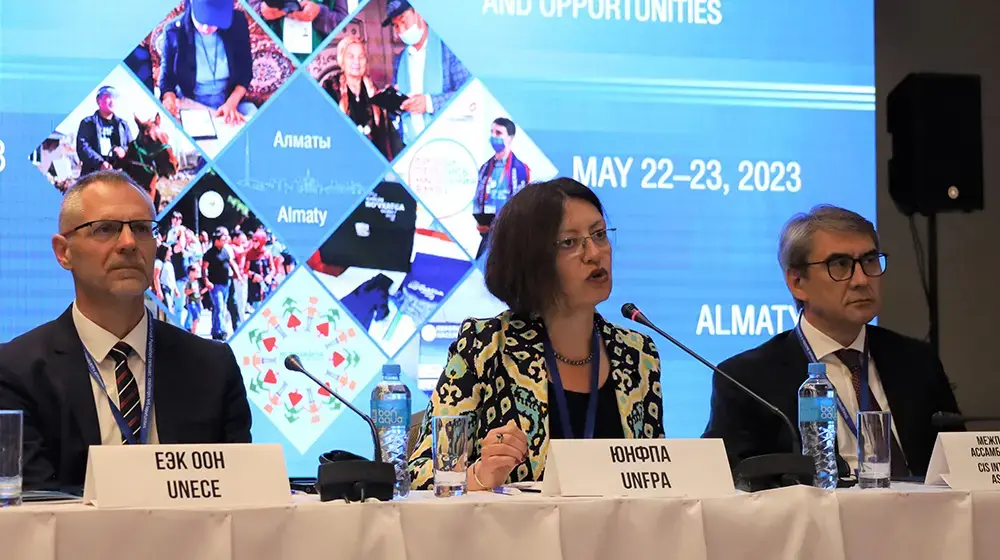A webinar for journalists in Kazakhstan on overcoming ageism in the media was held online on 26-27 July 2021.
Over two dozen journalists from national print and digital media outlets, together with representatives from the Ministry of Information and Social Development, and non-governmental organizations working for the welfare and empowerment of older persons, took part virtually.
The webinar was organized by UNFPA, the United Nations Population Fund, and funded by the Russian Federation.
The training was aimed at helping journalists portray a positive image of older people in society, based on the respect of human rights, and changing attitudes towards ageing.
"Ageing brings challenges,” said Dr. Alexandre Sidorenko, a consultant on policy and programmes on ageing who facilitated the webinar. “But it also opens up new opportunities for the development of an individual, as well as society as a whole. The webinar enabled live discussions on how active and healthy longevity can be established in Kazakhstan."
Journalists were presented with the latest analysis of how older people are depicted in the media in Kazakhstan, together with the findings of a 2020 sociological survey on the socio-economic situation and needs of older people in the country.
The journalists learned about the principles of active ageing and longevity, how they are applied in Kazakhstan and how they relate to demographic transition.
“I found the webinar quite informative and useful,” said Botagoz Seidakhmetova, a journalist at check-point.kz who attended the webinar. “It was very interesting to learn about the changing attitude towards ageing in many countries and the role of the media as the driving force of this change.”
The webinar is part of the support provided by UNFPA to the government of Kazakhstan to achieve the Sustainable Development Goals and was organized under the CISPop “Better Data for Better Policies” programme.
This US$4 million three-year programme was launched in 2019 to support policymakers in Armenia, Azerbaijan, Belarus, Kazakhstan, Kyrgyzstan, Moldova, Tajikistan, Turkmenistan and Uzbekistan to strengthen data-collection, analysis and utilization for evidence-based policy development in the Commonwealth of Independent States (CIS) region.





